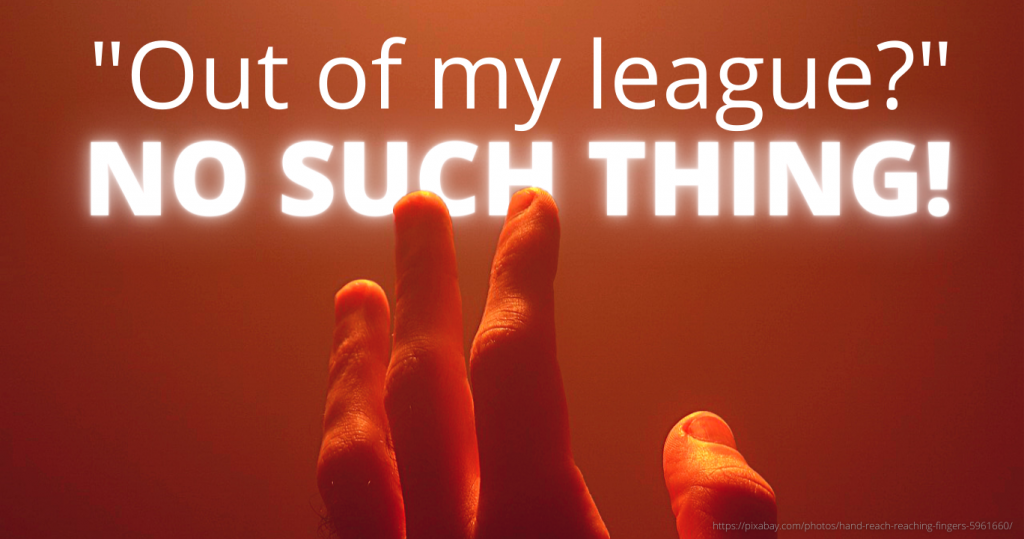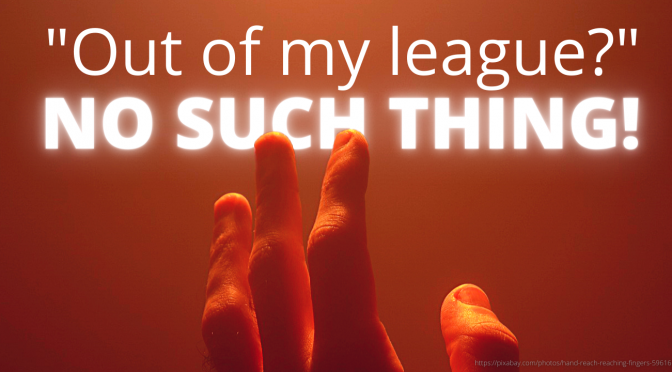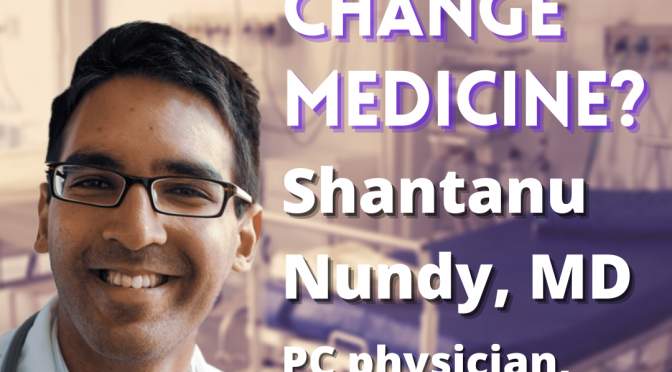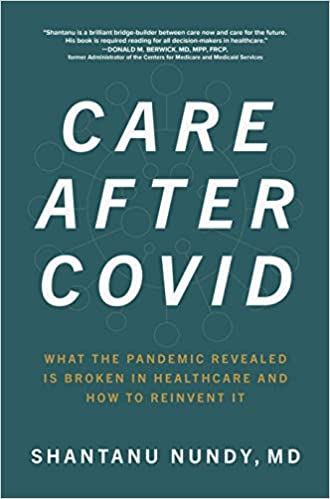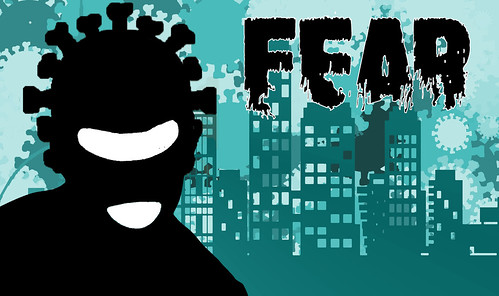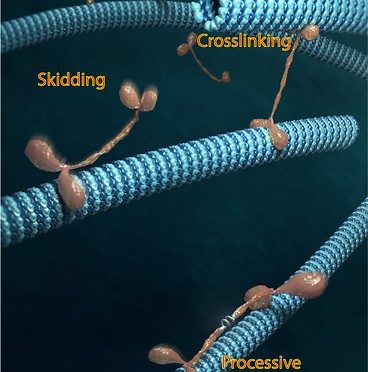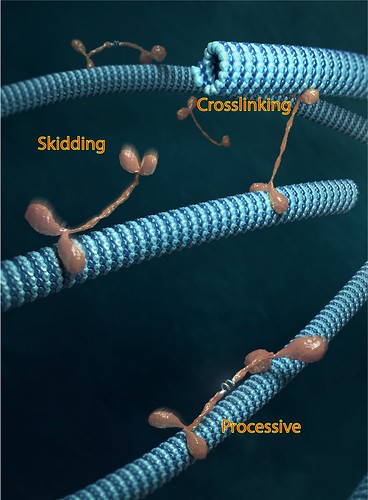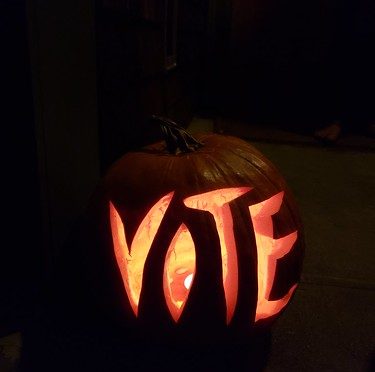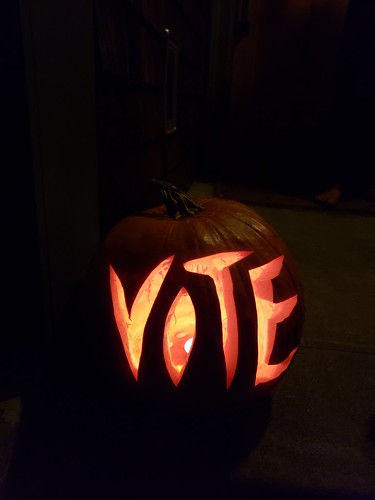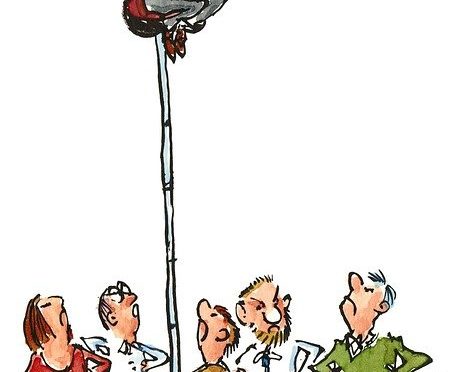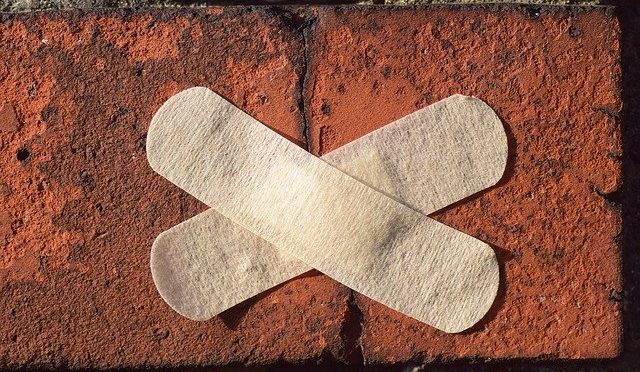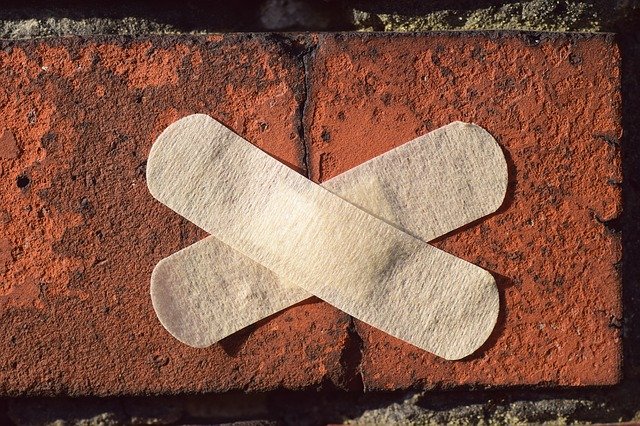Shantanu Nundy, MD, is no stranger to healthcare policy and patient care. He’s a physician, entrepreneur and technologist “passionate about reinventing healthcare for all.” He’s a CMO for a company working to improve health outcomes, a primary care doc in the Washington, DC area, and a lecturer in health policy at the George Washington Milken Institute for Public Health and advisor to the World Bank Group on digital health and innovation.
So we were grateful that he offered to sit down with Dave, M4 Holly Conger, M1s AJ Chowdhury and Rick Gardner, and M3 Emma Barr to talk about his new book Care After COVID. He shows us a future that COVID has revealed as possible for healthcare if we have the will to make it happen: in which technology is a tool that puts patients at the center of everything physicians and systems do.
How’d we do on this week’s show? Did we miss anything in our conversation? Did we anger you? Did we make you smile? Call us at 347-SHORTCT anytime or email theshortcoats@gmail.com. It’s always a pleasure to hear from you!
360 Care After COVID
Dave Etler: [00:00:00] Welcome Back
to the short coat, a podcast of the university of Iowa, Carver college of
medicine. I’m Dave Etler. That’s not important right now with me in the studio
recording and being live stream to our Facebook group. The Short Coat Student
Lounge, which you should join is the incomparable AJ Chowdhury over here is the
unparalleled Emma bar.
[00:00:55] The transcendent Holly Congar
is over here and in a class of his own it’s Rick Gardner what’s up homies. But
if you were thinking that that was all shortcodes well, that’s where you’d be
wrong. Joining us today is Dr. Shantanu.
a primary care physician technologist business leader. He’s got a new
book.
[00:01:15] Care after COVID what the
pandemic revealed is broken in healthcare and how to reinvent it out. This may
from McGraw-Hill education. Welcome to the show Dr. Nandi.
[00:01:24] Dr.
Nundy: [00:01:24] Thank you. I was, I was waiting to hear what
adjective I would get, but maybe I have to burn it.
[00:01:29] Dave
Etler: [00:01:29] Yeah, we just, either we just, we don’t just give
these adjectives.
[00:01:33] Dr.
Nundy: [00:01:33] You’re going to make me work for it.
[00:01:34]Dave
Etler: [00:01:34] Thank you for, thank you so much for hanging out
with us today. I really appreciate it.
[00:01:37]Today’s episode is sponsored
by panacea financial division of sauna bank member FDIC. Panacea is banking for
medical students and doctors. I’ll tell you more about them later in the show.
[00:01:46] So Dr. Nandi we took a look
at your book. I think you’re arguing in the book that COVID has given us an
opportunity to see a new future for patient care. Can you elaborate both on
this vision of decentralized digital and distributed?
[00:02:00] Care and how
[00:02:01] Dr.
Nundy: [00:02:01] it might work. There’s a lot to that. So I think
that most of us understand that this has been a once in a century pandemic.
Right. But I sort of optimistically look at it as a once in a century
opportunity to reinvent healthcare. And there’s really two reasons for that.
[00:02:17] Right. One is healthcare
chain has changed more in the past year than it has probably at any time in its
modern history, right. Like me as a patient doing my first virtual visits, I
did virtual physical therapy on my low back. Right. You know what I’m doing
with my own patients. And the second reason is because I think it’s really
magnified, not just for doctors, not just for patients, but for really every
stakeholder in our country for just how
deeply broken healthcare is.
[00:02:48] Right. Like, I think I don’t
have any conversations anymore where people don’t talk about health equity like
that. Wasn’t. Unfortunately the case a couple of years ago. Right. Or we’re
talking about mental health or so I just think that it’s because of both the
changes that have happened, but also sort of the understanding that is much more widespread
that this is really a special moment.
[00:03:07] So that’s really, the core
idea is it’s like kind of the classic, let’s not waste this crisis. Like we
have this moment now, what are we going to do with it?
[00:03:16] Dave
Etler: [00:03:16] So taking these ideas of decentralized digital and
distributed one at a time, I guess what is decentralized? What does that
mean in your vision?
[00:03:26] Dr.
Nundy: [00:03:26] Yeah. So first of all, let me explain sort of why
I think these three words matter, right? Cause I think that like, you know,
someone once told me words, create worlds, right. That the way we think about
things and conceptualize things really shift. Our minds and then shifts our
behaviors. Right. So I’ll ask you to maybe let’s start with distributed first.
[00:03:46] That’s the easiest one to
sort of grok, which is I’m sure a lot of us have heard like, Oh, carers become
virtualized. Care’s become virtualized. Right. But I always ask, like, has it,
I mean, yes, I’m seeing patients maybe through video or through phone. But
someone still have to stick a Q-tip in their nose to test code.
[00:04:04] Someone had to get blood
work. Someone had to take a medicine every single day. And so I think saying
that care has been virtualized is a little bit of a misnomer because it hasn’t
a component of it has, but overall ,
it’s just shifted. It shifted out of clinics and hospitals to being distributed
into the community and into people’s homes.
[00:04:26] And so that’s what the
concept of distributed is. It’s it’s care happens where health happens
digitally enabled. Right. So a lot of people talking about well, AI and EMR and
all that stuff. And I think to some degree, we think that those are the
technologies that are going to change care. But most of us have seen patients
know that the EMR doesn’t really change care.
[00:04:45] Right. It’s we went from a
paper form to, we scanned it onto a computer that costs us a hundred billion
dollars, but it didn’t really change the way we deliver care. So digitally
enabled is saying. Really the role of technology and data is to strengthen the
relationships between providers and patients, right?
[00:05:02] That you’re digitally
enabling that core interaction. And then do these centralized. It’s sort of a
counterpoint to the word value based care. Everyone’s saying value based care,
value based care population health. But to me, the key is you can’t just, ,
wake up one day. He said, Hey doctor, guess what?
[00:05:18] You’re now accountable for
that patient’s risk. Like you’re going to manage their risks, right. To do
that. You need resources and you need authority. And so decentralized. Power
has to shift you. Can’t just give doctors the bag and say, well, guess what,
you’re stuck with it. Now you have to give them the tools and the resources and
the authority, like simple things.
[00:05:37] Like, my nurses aren’t allowed to go to someone’s
house and draw their blood and most States in this country. And so if you want
to be able to shift care for people, we need to be, we need to get more than
just bearing the risks, which is what most of the value-based care is about. So
those are what the three, you know , terms are trying to conjure up.
[00:05:54] Dave
Etler: [00:05:54] Thanks
[00:05:56]friends. You’ve stunned them.
[00:06:01] Holly
Conger: [00:06:01] Oh, well, I just, I think we’re feeling like
we’re talking to an expert, so I’m not sure what I have to add to it, but I
know like, I’m an enforcer. So I
think as someone who’s about to join the
workforce, when I think about like
telemedicine and all of its opportunities, I think it’s a great chance to
improve healthcare in a lot of ways.
[00:06:16] But you know, the feasibility
of it is something that worries me. You know, I think there’s a lot of barriers
in place systemically and economically and blah, blah, blah, all those things.
And so I just wonder if it will actually be able to happen, you know, cause
there’s a lot of patients without digital access.
[00:06:32] And is it actually cheaper to
hire a massive amount of MTS nurses, paramedics, or whoever to go home, to
home, to home because right now, , all the IMTS and things that we have are
just doing emergency care. You know, like I can’t imagine the workforce needed,
if all of a sudden there’s that big shift you know, is a virtual visit going to
be reimbursed the same way for a physician, because if not, that’s quite the
motivation not to do it as a physician.
[00:06:55] You know? Like I just am
curious about overcoming a lot of the things in the way.
[00:07:00] Dr.
Nundy: [00:07:00] Yeah, no, I think all those are salient points.
And again, going back to why I prefer the word distributed, right? Because
virtual is a part of it that might work really well for me. It might work
really well for you, but for other communities that might be a community health
worker coming into your house.
[00:07:15] MTS, I think is a really cool
idea. Even just going back to house visits. So like actually house visits have
gone up dramatically over the past year. Right? Cause people are afraid to go
to a clinic and they’re rediscovering the value of that actually. One of the
stories that talk about the book that really did shift.
[00:07:33] My thinking was as you get
older, you’re an M four. You don’t have to deal with this yet, but as you get
old, like me and you got kids running around upstairs I decided to get life
insurance. And I actually had to get a physical exam in order to get life insurance.
And of course, like most people and non-compliant patients, like I didn’t get
one for years.
[00:07:50] So every time I’d fly it,
freak out that like something was kids. One of my friends had, you don’t have
to like go somewhere to get your blood work and physical exam they’ll actually
come to your house. And I said, Oh, okay. So, you know, I finally signed up
this nurse, came to my house, you know, and it was an amazing experience, like
actually on the table that I’m sitting on right now, how I got my first EKG
I’ve ever had.
[00:08:17]She drew my blood work. I got
to like pee in a cup, but in my own bathroom. But the experience was really
interesting cause I started putting my myself in her shoes. Right. Like, so
she’s driving to my neighborhood where she kind of sees all the tricycles in
the yard. Right. She’s walking up my sick stairs.
[00:08:33] She walks in and she sees my
prize possession on the right, which is my grand piano. And on the left, you
know, as you enter my house, you see like the cities that I’ve lived in and
like where I’m married, my wife and where I’ve traveled to. And what made me
realize is like, wow, like literally walking into my house, she understood more
about me than as a PCP.
[00:08:53] I understand about
unfortunately, so many of my patients. Right. And, and that was really
profound. And this was an insurance exam. Imagine if this was actually about
chronic conditions or actually around mental health or things like that. And
so. So, yes, I completely agree. I think thinking of of distributed as, as only
about virtual, I think is narrow.
[00:09:15]I think virtual is got a lot
of potential. And in many respects, actually the virtual we do is actually the
opposite of what we should do. So what happens today with virtual is we
actually make urgent visits virtual,
which is actually not a good idea. Yeah. That’s what
[00:09:28] Dave
Etler: [00:09:28] we were talking about.
[00:09:33] Dr.
Nundy: [00:09:33] It should be the primary care follow-up visits
that are virtual, because you’ve already met me. I’ve already diagnosed you and
done an exam and everything. But now I’m just being like, Hey, how’s the blood
pressure medicine going and okay. Are you taking it? Oh, you didn’t get it yet.
Okay. Let’s like, so anyways, so much to unpack there.
[00:09:49] Holly
Conger: [00:09:49] Yeah. I’m going into emergency medicine. So I
think that virtual urgent slash emergency care, it’s probably not a good idea,
especially because in this litigious society, like nobody wants to say, you’re
fine. Don’t go to the ER, don’t go to the urgent care. You know, like in my
experience, almost no one gets told that and they get sent in any way.
[00:10:06] And so then you just have to
pay for the virtual visit and the actual visit. But I think that there are a
lot of times like any clinic that I’ve been to where I don’t actually do much
of a physical exam that could have been a virtual visit, you know? So there’s
definitely room for
[00:10:18] Dr.
Nundy: [00:10:18] it. Yes, totally.
[00:10:21] Totally. Yeah. And then even
on the Homebase, like there’s a organization on, if you guys come across some
call ready responders, like they, to your point sent EMT to people’s houses,
they can do chest x-rays at home. They can do IB fluids at home. They can give
medications at home. Right. So it’s. It’s really interesting, you know, asking
the question, like, what is the right care setting?
[00:10:39] Like, it’s kind of like,
that’s the whole idea of distributed. We have to get sort of location agnostic,
you know, on some level, like, I think it’s right now, it’s just, it’s
synonymous with a hospital or a clinic. And I don’t know if that always makes
sense.
[00:10:53] Dave
Etler: [00:10:53] Yeah. And there are organizations, you know, like
I know the visiting nurse association
we’ll send people to your house for, care.
[00:10:59]I mean, as you say, there are
organizations that do this. It’s just that we don’t always think of it. When
the time comes. To do this. And maybe even providers , sometimes don’t even,
don’t even think of it, or they might not have the wherewithal depending on
where they are in the country or, or you know, if they’re rural versus urban
practice, I mean, there’s all kinds of factors there, but it’s not
unprecedented.
[00:11:19] It’s just perhaps under utilized and under funded, I guess,
[00:11:25] Dr.
Nundy: [00:11:25] probably. Yeah.
[00:11:28] Emma
Barr: [00:11:28] Kind of wondering if you have what your thoughts
are, if you have any specific thoughts on how this kind of distributed health
care works with medical education I’m an MP3. So I went through my core year
during the pandemic, having a lot of visits, turn into virtual visits and
televisits, and I feel like it impacted my education, but I’m wondering kind of
how you see that if we’re doing more distributed care, how can medical students
be involved in, you know, still get quality education?
[00:11:55] Dr.
Nundy: [00:11:55] Yeah, that’s a really good question. And wow.
Yeah, I’m sure you and I could talk for awhile about what he saw this year. It
, must be fascinating, but yeah, I mean, I think that at least my training
which was a couple of years ago, we did a pretty good job teaching people,
clinical medicine.
[00:12:13] We didn’t really teach them
to practice the medicine, if that makes sense. Right. And so w and what’s
interesting is that the places that are really good at teaching you clinical
medicine may or may not be the best places to learn the practices.
[00:12:25] Dave
Etler: [00:12:25] So maybe you should elaborate on the difference.
[00:12:28] Dr.
Nundy: [00:12:28] And by the way, that’s my own nomenclature.
[00:12:30] That’s not, you know,
[00:12:31] Dave
Etler: [00:12:31] I mean, yeah, because I’m. Not a doctor. I don’t,
I don’t know everything about medicine. We have listeners who are themselves,
not yet doctors.
[00:12:38] Dr.
Nundy: [00:12:38] So yeah, of course. Yeah. So what I mean by that
is clinical medicine is like, you know what in a textbook or something you’re
supposed to do.
[00:12:45] Right? So if somebody comes
in with chest pain, what are the questions to ask? What are the tests to order?
How do you interpret the test? Right? It’s like, The science part of medicine
versus the practice of medicine is, you know, how many minutes did you see a
patient for that has chest pain? And, you know how do you get them to tell you
the truth about whether they’re drinking or not?
[00:13:07] And how do you make sure that
you spend enough time with them, but also get your paperwork done and that you
get your coding right? And right. Like all those things. That’s what I kind of
need. It’s like the, between the difference. And I think what happens on both
sides actually in studies show, this is that if you look at practice variation,
meaning differences between me and you and other doctors or other nurses, most
of those differences, even 20, 30 years out, or a product of where we be
trained, which is fascinating.
[00:13:36] So for example, like I’ll use
this blood pressure medicine. And my
colleagues in my free clinic will order this blood pressure medicine. And if
you ask them. Why it’s not because like we read different papers or like we
went to different conferences or because like one of us is smarter than the
other it’s because I trained there and she trained there and that’s the
medicine that they use.
[00:13:56] Right. And so. My point in
this is that when it comes to the science and medicine, lots of places do a
great job when it comes to the practice of medicine and particularly
distributed care, these sort of newer forms of care, traditional academic
medical centers. Aren’t like, they’re the best that the science of medicine,
but there may not be the best of the practice of medicine, right?
[00:14:17] They have really long patient
wait times. And like, you know, they don’t doctors don’t spend it. Like the
experience is not that good, but the problem is because of that 30 year
overhang, those habits that we learn about how do you build trust, then? How do
you listen and how do you document efficiently?
[00:14:32] And where are you even see
patients at home or whatever, how soon you follow up all those habits, we’re
learning from kind of not the best places. And so, super long sort of responses to your, your
comment, but. I think what we need to do is in training is increasingly expose
our trainees to those places and do like away rotations at places that do
really good telemedicine based care, or
do really good home-based care or do really good population based care.
[00:15:03] And that’s going to mean for
many people that you have to leave your school or your residency and go to. The
real world where there’s truly places at the cutting edge of how to do that the
right way.
[00:15:14] Holly
Conger: [00:15:14] Yeah. I think depending on your residency
program, that is, or is not built in really well. I know for emergency
medicine, at least I will have several months where I’m at a private practice,
ER, you know, and so I will get to see like the non-academic version and I I’m
going to be at like a County hospital.
[00:15:30]And so I’ll get to see that
too. And so I think like depending on where you are and what specialty you go
into, some of them build that in and some of them don’t, which I think it’s a
great thing because how are you supposed to choose? I want to be an academic
physician versus I want to be a private practice physician, if you’ve never
seen it.
[00:15:45] Did you
[00:15:45] Dave
Etler: [00:15:45] make that choice when you were looking for
programs
[00:15:48] Holly
Conger: [00:15:48] would never have wanted to sign up where you only
get one flavor because you know, how do you, how do you know otherwise? And
like he mentioned, you know, Where you are really dictates how you practice a
lot of the time, I’ve even seen it as just an M four.
[00:16:01]And I think in Korea, one of
the most valuable things that started to grow is actually just my like clinical
experience, quote unquote, is where you start looking at a patient and
determining that sick or not sick. Like you start being like, I’m really
concerned about this person picking up on things and getting better at making
clinical decisions.
[00:16:17] I wonder if there’s many
studies on, if that still goes well, virtually,
you know, like, are you more likely to miss something or is a patient
less likely to be honest, virtually or in person? You know, I don’t know.
Either one could be better or worse. I just wonder how they compare.
[00:16:32] Dr.
Nundy: [00:16:32] Yeah. Yeah. Lots of questions. Yeah. It’s probably
[00:16:35] Holly
Conger: [00:16:35] some of you that we don’t have the research yet,
but you know, Oh, it’s interesting. Cause it’s like, wow. If my patient is like
three times less likely to tell me that they’re feeling suicidal, Via
telemedicine, then I’m not going to like that. You know, like I don’t want to
risk that or, you know, like whatever the thing may be, you know, that would be
something to look into.
[00:16:53] Dave
Etler: [00:16:53] You spoke about getting a window into people’s
lives that you might not otherwise get with with a more distributed definitely
valuable model, which is which I would, I guess not assume is the wrong word,
but I would wonder if you know, seeing somebody in their home would make them
more likely to talk about their world and the things that are really bothering
them.
[00:17:12] Dr.
Nundy: [00:17:12] And it
[00:17:12] Holly
Conger: [00:17:12] might be, you know, they might feel more
comfortable in, so maybe it would be even better for certain specialties.
[00:17:16]Dave
Etler: [00:17:16] Hard to know at this point, I think it’s funny
cause , we’ve had this ability for a long time. And it took COVID to get us to
start thinking about these things, which it makes total sense to me because, so
we get so stuck in our ways and , you
need you need something to shock you out of , your comfort zone.
[00:17:35] And I think that the most
fascinating thing that we learned out of COVID is that not only could we
change, but we could change really damn quickly when we had to adapting. So I
think that’s really interesting. I you know, one of the, one of the most
interesting things to me that came out of COVID was our, , influenza like
illness clinic that seems to appear.
[00:17:56] Overnight. Yeah. And then our
telemedicine treatment where we were treating people at home through visiting
nurses and visiting appointments and things like that, and blood and, and, and
monitoring of O two SATs and all this kind of stuff, which again, seemed to
happen overnight. And which was.
[00:18:16] Probably critical and keeping
our hospital from being overrun. So really neat to see that sort of thing
happen I wonder if it’ll last, . I hope
it will because I think it makes sense in a lot of ways.
[00:18:27] Dr.
Nundy: [00:18:27] Definitely. No, that, that is a really important
point.
[00:18:30] Not even just on virtual, but
it’s like, it’s like the three most important words I learned or the Ben it
maybe is yes, we can. It’s someone who has spent my whole career sort of
mucking around and trying to change healthcare. And I’m like, wow, that’s
complicated. It’s hard. It’ll take time. And it’s like, yes, we can now will
we?
[00:18:52] And do it. And, and part of,
I think, what policy makers, cause I get a chance to spend time with some
policy folks. I was on a couple of presidential campaigns and stuff is a lot of
them are looking at us and saying, wait, when we let safety net doctors text
their patients, like we didn’t have all these massive privacy violations that
doctors practice across state lines.
[00:19:12] Guess what? Like fraud,
didn’t just go up through the roof. Right? So I think part of this, I think the
reflection which we have to call it out, if we wanted to see happiness to say,
when you actually deregulate parts of healthcare, shit, doesn’t blow up.
Actually a lot of it gets better and it enables, this is the whole point of
decentralized, by the way, it’s this idea that let the front lines decide.
[00:19:34] AJ Chowdhury: [00:19:50]
so I worked as a scribe at a community practice when the pandemic first hit. So
for a couple of months, all my experiences were. Typing while the doctor was
sitting next to me in their office, talking to patients through a webcam.
[00:20:02] Now I was thinking, wow, this
will be really, really helpful for getting more and more patients in to the
clinic. But what about when you do go from one clinic to another, from one
health system to another, and you change EHR, is that decentralization of data
de-centralization of systems, will that hinder or help in that regard where you
can have records from one patient be available over Epic, but maybe not
[00:20:28] Dr.
Nundy: [00:20:28] over-serving yeah.
[00:20:30] Yeah, totally. I mean, first
of all, I’m, I’m usurping the term decentralized and decentralized means
specific things to specific people. I’m sort of specifically labeling it in a,
in a certain way. That’s different than how most people think of it. Right?
Cause like, so for example, like I think most people, when they look at COVID,
they say, well, the fact that every state can decide who’s eligible for the
vaccine, the fact that like.
[00:20:50] You know, testing was done by
different local departments of health was like a failure of decentralization.
I’m not talking about that decentralization. I mean, I think, but what you’re
talking about is really critical, which is as care gets more distributed, even
it’s there is a risk and the risk is that it gets more fragmented.
[00:21:07] Right? And that’s true today.
Like if I’m a patient, I can go to my primary care doctor. I could go to the
hospital. I could go to an urgent care center. I could call up a digital
solution. I could even go to Walgreens and Walmart and see a doc, right? Like
care’s already been fragmented like that, that cat is out of the bag.
[00:21:25] But as we move to a more
decentralized world where now, or distributed world, excuse me, where you can
actually have a home visit too. And you could have an ER person in your home giving
you IVs fluids, and you can write, maybe go to the barbershop and get your
blood pressure medicine. That’s only gonna increase the risk of fragmentation.
[00:21:42] And so sort of under
digitally enabled, I talk about this idea of connected, which is that it
creates a much, much greater need for connectivity. And I make the point that
connectivity is not just the way that most of the industry thinks about it
today, which is okay. Let’s connect EHR, which is critical.
[00:21:59] It’s also has to be true that
you have to connect. Care teams and processes, right? Because I mean, already
today in my EMR, I have more information than I could ever sift through. Right.
And so just the fact that I can have access even more information doesn’t mean
that when the patient walks in from clinic a to clinic B, that, you know, I’m
creating a connected experience, you know, but if that clinic called me, if we
had like a little handoff or other things like that, that plus the data
connectivity will create that experience.
[00:22:29] Because I talk about in the
book, how, like the, the question that patients dread more than any other
question in healthcare is what brings you in today? And the reason is right,
because they’re like, wait a second. I called your clinic. And I filled out a
form in the waiting room. Then I told your medical assistant, then I told your
nurse and baby, I even told the doctor who told me to come to you because
you’re the specialist.
[00:22:51] And I walked in and the first
thing you asked me is. I didn’t. So like, what brings you in today?
[00:22:58] Holly
Conger: [00:22:58] Kind of damages trust. Cause a lot of patients
look at you, like, why am I supposed to trust you with my care? If you know,
I’ve told a hundred people this and somehow you guys still don’t know.
[00:23:07] And sometimes it’s because
there’s that, you know, communication breakdown where you actually just don’t
know. But sometimes it’s just, everybody wants to ask because sometimes
patients stories change or they say it in a different way and they just want to
make sure they got it from the horse’s mouth.
[00:23:20] You have a good
[00:23:21] Dave
Etler: [00:23:21] reason for this, but the patients don’t know,
[00:23:26] Holly
Conger: [00:23:26] but I’ve been a patient too, you know, and that’s
super frustrating when it’s like, I’ve told like six people in the last 10
minutes. What I want and what I’m here, why I’m here? Like, why can’t you just
like communicate?
[00:23:35] Dave
Etler: [00:23:35] This is the thing I always think of, like calling,
calling your gas company.
[00:23:39] And then, you know, the first
thing they ask you that the phone tree asks you to input your account number,
and then you get, and then you talk to the live person. They’re like, okay,
tell me your account number.
[00:23:51] Dr.
Nundy: [00:23:51] But
[00:23:53] Holly
Conger: [00:23:53] I think the frustrating thing about the EMR in
general is if it’s not written down in the EMR, like doesn’t exist. And so
like, if you get care from multiple places that are not just under the
university umbrella or whatever umbrella, it’s like really hard to like get
documents and records and everybody on the same page.
[00:24:08]But I don’t know if. We would
all move to like, you know, the Epic monopoly and they just take over the world
and they’re the only EMR maybe that would fix it. But yeah, but you know
[00:24:17] Dave
Etler: [00:24:17] what I mean? It’s 20, 21. Yeah. You know, like
data is data. The key is in my fevered non-expert imagination. The key is
making it readable from one system to another.
[00:24:29] I mean, we have ways to do
this, you know, whether you’re talking about, , XML or , markup languages,
whatever, we can do this in computers.
It’s just that we are really bad at it right now.
[00:24:40] Holly
Conger: [00:24:40] Yeah. Yeah. I think like the EMR overhead is also
like kind of killing private practices a lot of the time, which is probably a
separate argument, but that overhead is just so massive that like small
businesses, quote, unquote, like just make it very hard for them to exist at
all, which is a different argument.
[00:24:55] But, you know, it’s just, I
don’t know if that would get better if we’re trying to get like small town,
primary care physicians to be able to serve a larger reason region because it’s
virtual, you know, like how are they going to support, you know, blah, blah,
blah. There’s just lots of questions that this whole telemedicine thing.
[00:25:08] Dave
Etler: [00:25:08] Well, and I think, I think sometimes of you know,
you’re talking about data from the EMR.
And then there are all these sort of ,
newfangled devices that people are able to get now, like for instance, you
know, the Apple watch where you’ve got,
a device that can read your heart rate,
it can get your blood pressure.
[00:25:25] , they’ve even begun to experiment with
glucose monitoring all this kind of stuff, and you can log it and you can keep
track of it and you can give it to your doctor and all this kind of stuff. And sometimes I
read articles that are like, this is it.
[00:25:37] This is a boon to healthcare.
And then I think, yeah, but I know doctors, it’s not that they don’t want that.
It’s just that the data becomes overwhelming at some point. How do you sift through all that data for
each patient? And you know, I can think of ways around this, like machine
learning and all that kind of stuff, but.
[00:25:55] IBM is selling Watson. I
don’t really know that that has come to its fruition yet
[00:26:00] Dr.
Nundy: [00:26:00] either.
[00:26:04] I think I’ll add that it has
to, we have to start with the patient and you have to, you have to go to the
care model and then the data and the technology has to support it. Right? So
like, let me give, like one of the examples that talk about in the book, right?
My mom has had type two diabetes for 25 years, right.
[00:26:21] And for 25 years, what does
that mean? That means that she goes to the doctor in 10 minutes. He tells her a
bunch of stuff and tells her to like eat healthy. And it says, great. Then she
goes home and for a week she does a decent job. Maybe he calls her a week later
with her lab results. And then it’s radio silence for six months.
[00:26:38] And then she goes in again
and does the same thing. And it’s been 25 years of that. And if you think about
the connectivity, let’s imagine that, you know, she had access to all that data
from her clinic visit on her mobile phone. Awesome. Let’s imagine that her
doctor, every time she saw him every six months, He had a synopsis of all her blood
sugar readings, but she hadn’t really looked at this month.
[00:27:01] Let’s imagine that when she
goes to an endocrinologist, all the data pops up in a second. Well guess what?
She would still be struggling with her diabetes because the . Care model of
seeing someone every six months and hoping that they’re going to change their
behaviors, doesn’t work. Contrast that to what happened to my mom, which is in
June, I’m super proud of her.
[00:27:20] She joined a program around
diabetes reversal. Where she was given a, a coach that you can interact with 24
seven. She was given a box that showed up in the mail that had a glucometer and
in a ketone meter and a bunch of recipes. She was connected to my family’s from
India, another Indian patient who lived in Chicago, who had learned a bunch of
recipes that work really well with Indian food.
[00:27:44] And she had an
endocrinologist through that same program. And within two weeks, she went from
25 units of insulin to 15. And within a month she was off insulin and it’s been
six or seven months. My moms. He hasn’t taken a single shot insulin. Wow. That
is amazing. And, and by the way hundreds of thousands of patients have done
that now and most talk about medical education.
[00:28:08] Most people that graduate from
med school don’t know that you can reverse diabetes. But that’s a whole nother
conversation, but my point is that that is how we need to think about solving
these problems, right? Because otherwise healthcare becomes this sort of very
insular world with like, Oh, well, hospitals are going to connect data to make
it easier for doctors to do it.
[00:28:25] I’m like, eh, the job of
health reform isn’t to make, I’m sorry to say doctors, licensure, hospitals,
Izz, or helper, but our job is to help patients. So how is that connectivity
going to help the pain? Now it might, but we got to think about an end to end
care model that solves their problem, which is my mom.
[00:28:44] Doesn’t like taking insulin.
She wants to get the fuck off of it. If you can, what is the care model
required to do that? And then how does technology and data scale and enable
that is the question. And I think, we
only have a finite amount of resources. You know, Joe Biden, they, they have a
hundred dollars to spend on healthcare and for every dollar we spend doing
something.
[00:29:04] That perpetuates a broken
care model is a dollar we’re not spending on building new care models that
actually solve problems for patients. And so that, that’s part of the message
I’m trying to give is like, yes. AI. Yes. Connected, I guess. Yes, yes, yes,
yes. What about what patients need and want?
[00:29:20] Dave
Etler: [00:29:20] This is, yeah, I was thinking about, how healthcare, just how the physical plant
of healthcare is set up.
[00:29:27] You know, it’s, it’s all
about the, the, the convenience for the system, the convenience for the doctors
and the nurses and the PAs and all those people
to. Have the patient come to the hospital and have the patient , they’re present in that environment. But ,
it’s definitely not for the patient.
[00:29:44]So I guess that’s kind of a
similar idea.
[00:29:47] Dr.
Nundy: [00:29:47] I mean, the most classic visceral example is when we help deliver babies, right? You
probably all know about this, but , why are women in stirrups and lying on
their backs during delivery? The opposite of what you would want to do, which
is let gravity do a job delivered babies in Uganda.
[00:30:03] It’s completely different.
Yeah, we do that because it’s like better for the doctors back and they can see
it. They can sit in their stool and like, right. Just like the
[00:30:13] Dave
Etler: [00:30:13] heart rate, the fetal heart rate monitor. Thing
which didn’t work out all that well for my wife. I remember but you know, it’s
there to collect data and send it to the nurses station.
[00:30:23] All it couldn’t do. It didn’t
work. It was just annoying to my wife.
[00:30:30] Holly
Conger: [00:30:30] Yeah. There’s some study that those heart rate monitors don’t actually
change outcomes at all because yeah. And so like, there’s plenty of that in
healthcare, but I think our whole system, like it’s broken because it’s
designed to be reactive instead of preventative, which is like the main problem
with our system.
[00:30:45] And, you know, I think a lot
of it comes back to, you know, funding, the preventative things, cause putting
every person on time with type two diabetes on this program, like your grandma
would be wonderful. And I think we would make a lot of difference and avoid a
lot of like the long-term sequela of untreated diabetes.
[00:31:01]If we could do that, but it’s
just like insurance companies tend to only want to pay for like. Procedures and
medications and doctor’s visits, you know? So I was just like, I think
restructuring that is our biggest barrier. Same with telemedicine is I’d be
curious as do we have insurance companies like treated that like a normal
visit, you know, like, do they
[00:31:18] Dr.
Nundy: [00:31:18] recognize that?
[00:31:19] I mean, they just it’s
temporary still, but they did make that change where they are reimbursed for
telemedicine that was changed during the pandemic, which has been a huge
enabler. I will, I will though half agree with what you said. So it’s
absolutely true that we need policy to change. Like there’s no question about
that.
[00:31:37] Right. And it’s true that
there’s a lot that we can do. As doctors and med students and individuals.
Right. I feel like there’s a little bit of a learned helplessness, like good
example, you know, the fact that we’re doing drive-through testing. Now we, as
my clinic, we could have been doing this for, for years for a lot of things.
[00:31:56] Yeah. I mean, the idea of
putting someone during flu season in a crowded waiting room waiting for 30, we
could just have someone standing outside spa and people’s no, we could have
done that, but we just, we didn’t lead with that. Like I now prescribe my
patients, you know free mindfulness, you know, apps that they can get.
[00:32:13]Even my mom’s, example’s an
interesting one, because if you look at how much she’s been paying out of
pocket, For her insulin and test strips and stuff like that, versus how much
she’s spending on this service. It’s actually almost on par. It’s slightly more
that she’s paying for this service which obviously for some patients would be a
deal breaker, but I think sometimes
we’re like, Oh, well, let’s wait for policy to change. It’s like, nah, we can
do this. There’s guard rails that limit us, but there is way more we can and
should do for our patients.
[00:32:42]Dave
Etler: [00:32:42] I’m gonna take a break to talk about our sponsor for this episode,
our friends at panacea financial. Panacea financial was founded by two young
doctors because they found other banks, business practices and compatible with
the physician lifestyle. They were frustrated by other banks high interest rate
co-signer requirements, restrictive loan terms flat-out rejections,
inconvenient access to customer service.
[00:32:59] So they built banking
specifically for doctors and doctors in training . Panacea offers PRN personal
loans for medical students with fast decisions and funding in as little as 24
hours. No co-signer required because you’re adults that’s, you know, why do you
need a co-signer anymore? And, and with rates less than half of a credit card,
they also offer a totally free checking account with all ATM fees reimbursed
across the country.
[00:33:22] So you can take them with
you. Wherever you go for medical school, into residency and beyond. Best of
all, every customer at panacea gets their own private banker. Their private
bankers are supported by a live concierge desk service 24 hours a day, seven days
a week because they work doctor’s hours, not bankers hours, and they have a
nonprofit arm, the panacea financial foundation investing in doctors and
training and working to improve the leaky pipeline.
[00:33:46] For underrepresented, ethnic
and racial minorities in the medical profession with scholarships and grant
programs. Go to panacea
financial.com/match to learn more. Panacea financial is a division of sauna
bank member FDA. I see. Thank you for your sponsorship
[00:34:13] Dr.
Nundy: [00:34:13] Does
[00:34:14] Holly
Conger: [00:34:14] insurance cover any of your mom’s program for the
diabetes that’s helping? Does it cover
[00:34:18] Dr.
Nundy: [00:34:18] anything?
[00:34:19] It is. It is. They are. So
what they did, what they did was because through the program, some of the test
strips and things come with like her care package every month, they reimbursed
that part.
[00:34:31] Holly
Conger: [00:34:31] Okay. But they’re not covering the like
additional services, like the
[00:34:34] Dr.
Nundy: [00:34:34] coaching, but again, compared to the copays that
she was, you know, the $25 every time she saw an endocrine, like if you
actually add it all up, it’s almost the same amount.
[00:34:44] That she would have paid it
slightly more like on the order of 50 more dollars a year. So it’s pretty
close. And then you can think over time about like, well, what if this avoided
an ER, visit and stuff, which, you know, there was like, you know, another
copay for that and stuff like, it may actually be, you know, cost savings for
her, but it’s clearly a barrier.
[00:35:03]You know, but, but there’s
also room, I think more room than we think patients paid for a lot of stuff out
of pocket, a lot,
[00:35:12] Holly
Conger: [00:35:12] like one hospitalization for a heart attack or a
kidney, something or anything, you know, it would be worth it to the insurance
company. Cause that is so expensive versus paying for this life coach for.
[00:35:22] Or this, whatever the name is
diabetes for like 10 years. Yeah.
[00:35:30] Rick
Gardner: [00:35:30] Like in this model and you were saying, , like
with this example, this anecdote of viewer mother and being able to, if we
could like mainstream or inform a, the broader medical community of this, maybe
we could start getting people on board with this.
[00:35:43] And that’s the shift having
that information and people decide, well, if it’s going to be equally costs you
know, the cost is going to be the same, but it’s going to be more efficacious.
Maybe we start doing this and that’s where it catches on as a paradigm shift.
How do you think that would be implemented or.
[00:35:59] What do you think would be
the catalyst for that? Because I mean, I agree it, preventative care is always
going to be better. And we should be less reactive.
[00:36:07] Dave
Etler: [00:36:07] Well, first of all, you got to get all the old
physicians to die.
[00:36:11] Dr.
Nundy: [00:36:11] I’m sorry. Retired.
[00:36:14] Dave
Etler: [00:36:14] No, I’m kidding. But you know, there’s,
[00:36:16] Dr.
Nundy: [00:36:16] there’s inertia. Yeah, no, it’s a great, it’s a
great question.
[00:36:19] I don’t know if I have a
brilliant answer for that, other than like, this is why I wrote this book.
Right. Like, I think that, like, like I said, if you ask most of your
classmates graduating from med school the day how ask them is diabetes of
reversible disease? What percent do you think will say yes.
[00:36:34] Type
[00:36:34] Holly
Conger: [00:36:34] one or type two
[00:36:39] Dr.
Nundy: [00:36:39] I think your classmates, I’m guessing less than
10% of them will think it is maybe less than five, maybe less than 1%. And so,
and, and that, that’s, that’s another thing we don’t talk about. Right? So in
healthcare, right? It’s the classic, it takes 17 years for new clinical
guidelines to make it a mainstream clinical practice and were doctors like, Oh
my God, I can’t believe those other doctors.
[00:36:58] Like, nah, it’s all of us.
Right. And, I talk about in the book, \ it’s like 17 years ago, the iPhone
didn’t exist and we went to blockbuster to watch movies. And that’s what it’s
like when you walk into a healthcare clinic today in 2021, you’re getting 2004
care. So
[00:37:14] AJ
Chowdhury: [00:37:14] speaking of inertia I want to ask since you’ve
started to really look into how things have changed with virtual care, since
the pandemic began.
[00:37:24]So my aunts are radiologists
and whenever anyone asks, if AI is going to replace her, she always responds
with no, cause you can’t Sue a computer. What has the legislative landscape
will look like since tele-health started getting more insurance coverage and
now there’s more actual legislative policies in place to support
[00:37:42] Dr.
Nundy: [00:37:42] it.
[00:37:42]So is your question more
specifically on like, what’s happened with malpractice around it or started?
What, what aspect of it are you referring to specifically,
[00:37:49]AJ
Chowdhury: [00:37:49] Big picture view of the landscape surrounding
policy and virtual care. Is it moving in a direction that’s better for the
patient right now?
[00:37:57] Or is it still early in
[00:37:59] Dr.
Nundy: [00:37:59] the process? Got it. Got it. Great. Great question.
So first let me tell you what the current state is, and I’ll tell you my
opinion of it. So the current state is I think there’s broad consensus on sort
of both sides of the aisle that con you know, compared to pre pandemic,
telemedicine will be reimbursed.
[00:38:15] Going forward at scale. So
like no more requirements, like you have to have seen them in person first and
then afterward it can be virtual and no, like what only in places that are
medically underserved or only for certain spent, like, I think. The broad
consensus is that this is, this is a valuable modality to practice medicine.
[00:38:34] There’s some edge cases that
they’re going to figure out, but I think that’s kind of the current state and
we’re just waiting for all that stuff to get finalized. My opinion though, is
that I have a lot of concerns about how exactly we’re going to do that. So for
example, one of the debates right now is like, well, audio only telemedicine
can get reimbursed just the same as video based and just the same as an
in-person visit.
[00:38:58] Like for some of the reasons
we discussed earlier on urgent care and like sick, not sick, like that’s,
doesn’t make a lot of sense to me. The other thing is that there’s a risk that
telemedicine becomes really transactional, right? Where instead of a proper
clinic visit where you like get to know them and all that stuff, that was just
like, okay, well, what do you have low back pain.
[00:39:15] Okay. Here’s some ibuprofen,
right? And unless we put in place the right framework, whether it’s quality
measures or value based care or whatever, I think what’s going to happen is
you’re going to sort of. Cater to the lowest common denominator and you’re
going to have all these clinics and all these private companies and stuff really
just, you know, per, you know, provide frankly low quality care over a virtual
telemedicine type service.
[00:39:40] And so I, I think to me,
that’s the biggest policy risk is that we’re not really using it to re-imagine
that care. It’s not really like the, my mom example, it’s like worse than an
urgent care type of example becomes like, you know, as like from a
reimbursement perspective, it’s gets reimbursed the same as if you spent 30
minutes on a video, really getting to know them and like taking a tour of their
house and like building a trusting relationship.
[00:40:06] Each of those are going to
get paid equally the same, and so guess what’s going to happen. And so there’s
going to be a missed opportunity, I think to not structure the legislation in
the right way. You get to what we all want.
[00:40:16] AJ
Chowdhury: [00:40:16] It seems like right now there’s mostly
bandages being put in order to treat a symptom, but not addressing the actual
underlying cause of what is a, essentially a broken healthcare system.
[00:40:29] Dr.
Nundy: [00:40:29] Yes. It gets
[00:40:30] Rick
Gardner: [00:40:30] broken at both a like a small scale individual
personnel, personal based matter as well as the grand scheme of things is also
broken fractured from top to bottom. When you were talking to like the words
that came to my mind were like healthcare, industrial complex. We’re going to
move to this just.
[00:40:46] Like massive rollout of just
proficiency with no excellence in the care or no quality.
[00:40:53] Dave
Etler: [00:40:53] Yeah. That was one of my concerns as well in
thinking about all this, as, you know, the temptation will be just like with
the EMR, a desire to make things more efficient, which, and, and more, you
know, sort of cost effective, which I’m not sure that those things always
result in good health.
[00:41:12] Holly
Conger: [00:41:12] I mean, that system is kind of already still in
place now, you know, like people are paid based on how many number of patients
do you see a day, which is quite the driver for a lot of doctors to see 50
patients in a day, 60 patients in a day. And it’s like, if you divide up the
physical time, that means you’re spending almost no time with each patient, you
know, and that’s even an in-person visit.
[00:41:31] So that system is already
kind of. There. And so I only imagine it being worse. If you could just get
away with a five minute phone call, you know so unfortunately I think that’s a
problem we already have. And it’s not unique to the telemedicine idea, but it’s
interesting to me that the insurance companies in the billing were just so easy
to adopt reimbursing the virtual visits, because they’re so strict about, like,
if you want to be billed for this level of patient, you need like a 10 point
review of systems.
[00:41:59] You need at least five
systems on your physical exam, blah, blah, blah. I’m like all that just
vanished, which I think is kind of interesting.
[00:42:07] Dave
Etler: [00:42:07] Well, like we’ve been saying all along, Suddenly,
we surprised ourselves by how many things were not necessarily necessary. Yeah.
[00:42:14] Rick
Gardner: [00:42:14] And it’s funny that we could even like, know
that and like have that understanding beforehand, but we still don’t want to
change because we’re like either that stubborn or just that stuck in the rut.
[00:42:27] Dave
Etler: [00:42:27] I don’t think , many people suspected that those
things weren’t necessary, but yeah,
[00:42:31] Rick
Gardner: [00:42:31] I would use the example just from like a
personal anecdote, like being in the hospital and someone who has a history of
Marissa and we still have to put on gowns. But they don’t have an active
infection.
[00:42:41] That was something that was
happened, but because of PPE, shortages and logistics would, that was something
that was early on taken out in this, like, okay, now we can go in without
gowns. They don’t have an inactive infection. I, I’m not, well-versed in the
science. I’ll preface with that, but it’s like, that’s something that I feel
like could have been done earlier, but I guess there was a need to, and it’s
surprising that we just didn’t do it earlier.
[00:43:00] Like logistically, I mean,
cost effectiveness is still there. And money drives a lot of medicine and a lot
of just life in general and especially politics, you know?
[00:43:10] Dr.
Nundy: [00:43:10] So yeah, a big area we didn’t talk about, which
relates exactly to that is, is. I’m also a really big believer that patients
should be allowed to do a lot of stuff themselves.
[00:43:18] Right? So like early
independent, the whole reason I wrote this book is because early and pandemic,
I wrote a piece that people should just be able to test themselves. And it was
crazy to see the response to that. Like I was like in rolling stone magazine,
like, it was crazy. My wife’s like who the hell?
[00:43:33] Like, but when I talk to
policymakers, like I was in USA today, and this was like, mind boggling is one
physician said, how can patients test themselves? Because how can they
interpret the result? It has to be interpreted by a physician. Who’s known them
for many years to interpret a COVID.
[00:43:55] When was the last time you
practiced? Like how many of us. No, our patients for many years, like
medicine’s become unfortunately for so many people, so transactional. But then
like you said, out of necessity, , we are letting patients test themselves now,
right? Like, like door dash delivered to your house and CVS, you can have a
little cartridge and test yourself, but been doing this for
[00:44:16] Dave
Etler: [00:44:16] years with pregnancy tests.
[00:44:17] I mean, it’s
[00:44:18] Dr.
Nundy: [00:44:18] exactly like,
[00:44:20] Dave
Etler: [00:44:20] but you don’t need a doctor to, I mean, yes, you
might need medical guidance, medical guidance,
[00:44:26] Dr.
Nundy: [00:44:26] but a hundred percent. So diabetes is a great
example. Pregnancy diabetes. If you have diabetes, you can test yourself for
your sugar. Right. But you can’t diagnose yourself with diabetes with the same
test.
[00:44:39]And that’s like, you know, and
so like, again, if somebody is sitting there saying, I want to get screened for
diabetes, because I’m just worried about it. It’s a whole rigamarole it’s I
have to have insurance. I have to look up who’s available. I have to find a
doctor, which by the way in America is about a three week, wait on average,
then I got to take a half day, all this stuff just to test themselves for, for whether
or not to teach themselves whether or not they have a risk or have diabetes.
[00:45:04] And so it’s, it gets to your
point. It’s like, I think it’s, it’s forced us to question things that at least
I’ve been questioning for years. And now the question is like, Yeah. Are we
going to revert? And then for a bunch of other stuff that doesn’t make sense,
that’s not related to COVID. I mean, most healthcare that’s changed.
[00:45:19] The vascular is like acute
COVID, upper or viral respiratory stuff, but can we take that same sort of
fresh thinking and apply it to all parts of healthcare and say like, do women
really need, who’ve been on an oral contraceptive for 10 years, really need a
refill from me. Oh my God,
[00:45:40] Dave
Etler: [00:45:40] this is the exact thing that I was thinking about
was, you know, like I’ve been on this medication for 20 years and yet I still
have to you know, get that prescription reauthorized every single year.
[00:45:52] And I have to do it in person
with my physician, which I understand part of it is to just get me there so
that he can actually do a well person physical but Oh yeah,
[00:46:01] Dr.
Nundy: [00:46:01] every year I’m like so many people, like maybe you
have a job that allows you to make it, you have held, but imagine for people
who can do that.
[00:46:09] And so then we’re like, Oh,
they’re not compliant. They fell off their medications. They’re just like,
well, they’re alternative. Isn’t just an annoyance. Their alternative is
actually no care. Yeah, right. And so again, it’s like, are we going to
question these things and are we going to change things? Are we just going to
let it all go?
[00:46:25] And that’s, that’s part of
what I mean by decentralized is putting power resources and, and, and
responsibility onto frontline teams and to patients like patients can do a lot
more than we give them credit for.
[00:46:38] Rick
Gardner: [00:46:38] I really liked even. So you made a reference to
another book you had written and I’m like . Working with my dad to like, try to
make sure he’s a healthy individual and you wrote a book and I, I forgive me.
[00:46:47] I can’t remember the name of
it. But essentially like here’s a guide for like every, I think it was like
decade of life and what you need to do. And I think that education, because I
think we’ve talked about previously medical education and health education
within America has failed. So people don’t know how to take care of themselves.
[00:47:02] And so having a book like
that and, and information of how to take care of yourselves and giving at least
power to the patient and the person to make actionable steps towards their own
health is,
[00:47:13] Dr.
Nundy: [00:47:13] is correct. Yeah. Yeah. And that’s, you know, I
want to end on a, on a sort of a positive note, but I think that’s some of the
real revolution that’s happened.
[00:47:20] Right? Like I think they
think about patients they’ve realized that they can actually prevent the flu,
like who they touch, how close they stand. Right. You’ve had, we don’t know the
numbers, but I have had countless patients by their first blood pressure cough.
Use a pulse oximeter for the first time, right.
[00:47:37] At home, like find where to
get vaccines themselves, find where to get tested. They know what a sensitivity
and specificity is like. They’re reading about every single day. Now through
social, like I think there’s been, you know, we’ve been wanting patients to
take more control, but this, this has created a massive cultural shift that I
don’t think we fully understand and policies can change, but I think culture
shift, like you remembering, , and sort of the impact of you finding your own
test, your own vaccine, you know, managing your own refills.
[00:48:09] Like I think that is going to
sustain for a long time. And I think it’s going to create enormous
opportunities to improve
[00:48:17] Dave
Etler: [00:48:17] health care. Yeah. it sort of reminds me of the
fact that , the other day I was marveling that I a have not gotten a cold
this winter and B despite the fact that
I’m not supposed to get a flu shot.
[00:48:29]I haven’t for the first time
gotten the flu in a while and you know, all that is because I learned to wear a
mask. And, you know, also was home a
lot, but I keep thinking, I had like next year, am I going to, am I going to
wear a mask? When I ride the bus to work? Am I going to wear a mask? Like you
made
[00:48:46] Rick
Gardner: [00:48:46] a point in your book that like you compared it
to nine 11 in that there is a before and an after, that’s something that I’ve
said.
[00:48:54], I think we have faced a
point of no return that things just cannot go back to where they are. Like the
example with the mask. I think we will see more masks. Our generation of individuals will they’re in like commuting
to work using mass transportation, or even
out in the restaurants and such a mask will be more visible.
[00:49:11]Which is something that we
haven’t seen in America. And I think other things within healthcare politics
socio-economics what, may have you I think that’s a huge thing as we have
entered into a new era of
[00:49:21] Dr.
Nundy: [00:49:21] life. I wonder if the next normal, yeah, totally
[00:49:28] Dave
Etler: [00:49:28] speaking of the post COVID era do you have a
listener question?
[00:49:31]Justin would like to know.
Yeah. Living in a post COVID 19 era, do you believe that there will be bigger
push for developing technologies? And his example is , remote, robotic surgery,
more prevalent in the healthcare setting. That’s a, that’s like a, that’s like
a
[00:49:47] Holly
Conger: [00:49:47] big, that’s a big, that’s a big,
[00:49:50] Dr.
Nundy: [00:49:50] yeah.
[00:49:51] Yeah. I think absolutely. I mean, I think that as
care moves out of facilities into clinics and then into homes and to
communities, that’s going to require a whole shift in technologies. Right? Part
of it is taking existing technologies and making it actually consumer friendly,
right?
[00:50:08] Like if you’ve ever operated
like an event or like even trying to figure out how an IV pump works, like once we start delivering that at home
and patients are doing it themselves, it’s gonna right now, basically the
technologies that are built are like the ones that get the biggest discounts
and sort of cost plus pricing.
[00:50:25] It’s going to shift towards
ones that are actually functionally useful. And those that’s going to be a
whole dimension. And so I think that that is going to take existing
technologies to do that. And then I think it’s going to drive a whole bunch of
new technologies. Like one of the like backend ones that I think is gonna be
huge is how do you manage and to end supply logistics, which is not that sexy,
but when you’re in a hospital and someone orders that antibiotics, it’s pretty
easy to like, get it up to the floor.
[00:50:50] Imagine if you’re being
hospitalized at home, how do you get someone that’s that antibiotic, or if you
are getting oxygen at home and suddenly the tank runs out. So how do you manage
that? That’s going to require a whole new set of new technologies. I think
there’s going to be a lot of delivery technologies.
[00:51:05] Obviously drones are
increasingly more common. And I think you’re right. I think we’re going to
start to see procedures as well start to happen in homes and communities. So I
think it’s a really, really interesting time.
[00:51:16] Holly
Conger: [00:51:16] Hi, brain surgeries are a little further out just
cause like, you know, with robotic surgery and something
[00:51:28] Dr.
Nundy: [00:51:28] into your house.
[00:51:29] Holly
Conger: [00:51:29] I mean, it’s more just like, you know, robotic
surgery is great until something goes wrong. Like the machine breaks, you hit
something and need to convert to open surgery. If the surgeon is not there.
Yeah.
[00:51:40] Dr.
Nundy: [00:51:40] Yeah. Yeah. Although again, I think, you know, the
play, my sort of like engineering nerd counter to that is like, I think we
don’t often think about the counterfactual.
[00:51:50] Like how often do surgeons
make mistakes? You know, we shouldn’t be operating anymore. And, and then the
other one is disparities. How many people live in a place that don’t have any
surgery at all? Like up in Alaska and certainly all the places around the world
I’ve worked when I was at the world bank.
[00:52:05] So you’re right. But I think
this is the point of distributed. We have to think about each local context and
think what is the best model starting patient first? And, you know, we may
surprise ourselves. Like, it’s like when the first autonomous car crash, I was
like, Oh, the car crashed. Oh my God. It’s like every day.
[00:52:25] Right?
[00:52:26] Dave
Etler: [00:52:26] So it’s the same, it’s the same concept with the
vaccines, you know, every time there’s a vaccine. You know, adverse reaction,
that’s very serious. It ends up in the news. And so we end up thinking more
about that than the fact that the vaccines are actually, you know,
[00:52:38] Dr.
Nundy: [00:52:38] and
[00:52:38] Holly
Conger: [00:52:38] I think it’s like, it’s all about responsibility
is like, that’s the holdup is who’s responsible.
[00:52:43] If the telehealth visit, you
think it’s fine. And then the patient dies from something you missed. Who’s
responsible if the remote surgery goes wrong and nobody’s there to fix it, you
know, like a lot of questions, it’s all about the responsibility reactive.
Right? What did you as part of it, which is unfortunate, but that’s just like
what I think.
[00:52:59] We’ll probably be in the way.
[00:53:01] Dave
Etler: [00:53:01] So I guess
my question to you doctor, before we go is you know, we’ve talked about
whether doctors are ready for it.
[00:53:08] We’ve talked about whether
the system is ready for it, or the patients ready for this. Are they clamoring
for this or do they even know what’s possible?
[00:53:16] Dr.
Nundy: [00:53:16] Yeah, I mean, I, I think so. I think that’s that
cultural shift, right? That I think that. People that have had their first
virtual visits, you know, have for their first home visits, you know, that
have, you know, found their own vaccines, found their own tests.
[00:53:32] I think that they are
realizing that a, the healthcare system it’s magnified how bad it really is
and, B) it’s shown them what’s actually possible. And I think that’s unleashed
something that I think will be a mega trend over the next several years. And
one that I’m super excited about. Look
[00:53:51] Dave
Etler: [00:53:51] forward to seeing
how this all shakes out, loved the book.
[00:53:53] Thank you so much for sharing
your ideas and your book with us. Care after COVID. Where can listeners find
out
[00:53:59] Dr.
Nundy: [00:53:59] more? Yeah, so the book’s coming out on May 4th apparently,
but he can already pre-order it on your favorite online store. And and I also
have a little website care after covid.org, or I’m going to a lot of the
additional pieces that I write or conversations that I have we’ll, we’ll kind
of be up there.
[00:54:16] And so, yeah, I would love to
build community around this and just this overall change. I mean, I think, I
really think it’s like that once in a century opportunity. And I think that the
folks that are listening, you guys have as big a role in it or bigger than I
do, given that I got a few less years ahead of me, but you know, like it’s all
it’s on us.
[00:54:36] This is our moment. Well,
[00:54:38] Dave
Etler: [00:54:38] thank you so much. That’s our show.
[00:54:41] Dr.
Nundy: [00:54:41] Emily, Emily. Jesus,
[00:54:46] Emma
Barr: [00:54:46] take me
[00:54:46] Holly
Conger: [00:54:46] a minute.
[00:54:48] Dr.
Nundy: [00:54:48] I
[00:54:48] Dave
Etler: [00:54:48] told you
[00:54:50] Rick
Gardner: [00:54:50] that was in assigned seats.
[00:54:54] Dave
Etler: [00:54:54] Hey Jay, Emma, Holly, Rick. Thanks for being on
the show with me today. I’m happy to be
[00:54:59] Holly
Conger: [00:54:59] here.
[00:55:00] Dave
Etler: [00:55:00] And what kind of Mexico intestinal fistula would I
be if I didn’t. Thank you. Shortcuts for making us a part of your week. If
you’re new here and you like what you heard today, subscribe to our show.
[00:55:09] Wherever fine podcasts are
available. Our editors are AIG Choudhry and Eric Bozart and Alex Belzer is our
marketing coordinator. The show is made possible by a generous donation by
Carver college of medicine, student government. And ongoing support from the
writing and humanities program. Our music is by Dr.
[00:55:24] Fox and atmosphere. Talk to
you in one week.
